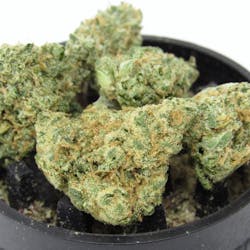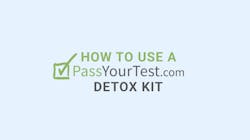We know, we know, you were nearly finished mastering the nuances of star cannabinoids THC and CBD, and how they impact your high; you know how they synergize with other cannabis-derived compounds called terpenes, and maybe you have looked into the much-disputed entourage effect. Endocannabinoid system? No problem. But now we’re going to throw a wrench in that with another compound: THCA.
Cannabis plants produce over 100 different cannabinoids, all of which contribute to how a smoking, vaping, edible, or topical experience will affect you. While you may not realize it, THCA is a part of the plant, and it’s time you learn more about it.
What is THCA?
THCA is the acidic form of THC, full name: tetrahydrocannabinolic acid. As a cannabis plant matures and its buds grow, its terpene and cannabinoid content begin to develop. The first cannabinoid the plant will develop is CBGA, also called the “mother of all cannabinoids” because it will eventually break down and produce primary cannabinoids, like THCA and CBDA.
THCA is not intoxicating if ingested. Chemically, it has an additional molecular carboxyl ring, which prevents it from binding to receptors in the brain responsible for feeling high.
You may be thinking, ‘what’s the point if it doesn’t get me stoned?’ But without THCA, we wouldn’t have THC or the numerous health benefits attributed to it.

When THCA is exposed to heat, such as when smoking, vaping, dabbing, or cooking, it will convert into the intoxicating, beloved cannabinoid THC.
THC vs. THCA
The biggest difference between THCA and THC is that THCA does not produce the intoxicating effects that THC does. However, THCA must be heated to create THC, through smoking, vaping, dabbing, or cooking for edibles. This conversion alters the molecular structure of THCA by removing a carboxyl ring. This also helps THC bind to CB1 receptors in our bodies.
Effects-wise, THCA and THC overlap in some areas. Both have potential to treat nausea, but THCA shows far more promise for addressing inflammation. On the flip side, because THCA isn’t intoxicating, some may find it less effective for sleep than activated THC. And while THC isn’t recommended for seizure disorders, THCA may show some promise in addressing those conditions.
Is a higher level THCA or THC better?
All states with a medical or recreational cannabis program require cannabis brands and operators to test products at a third-party lab to ensure their compliance and safety before they can be sold to the public. THCA and THC levels will help you determine how potent a product is and what kind of experience you’re in for.
While it may seem like you want a high THC number, applying heat to THC directly may burn away some of the cannabinoid content and leave you wanting more.
Unless you’re looking for edibles, you want high THCA numbers, not necessarily THC; that THCA represents the full potency potential of what you’re about to smoke, dab, or vape, because it will convert to THC. If you’re looking for flower, vape cartridges, or concentrates, you want to check for the THCA number. These are all products that require decarboxylation, aka activation by heat, in order to produce a high.
Is THCA the same as delta-8 or delta-9?
THCA is the acidic form of delta-9 THC, the most prominent intoxicating compound in cannabis.
Delta-8 THC has the same number of atoms as delta-9, but their arrangements differ, and this arrangement impacts its effects. This is how companies have been able to legally produce delta-8 products from hemp plants, which by law must contain less than 0.3% delta-9 THC.
Delta-8 is also derived from THCA, called delta-8-tetrahydrocannabinolic acid, but little research exists to understand how it measures up against THCA.
Additionally, both delta-8 and delta-9 THC have some degree of intoxicating effect when consumed. They are not in acidic form, as THCA is.
What are THCA’s effects and benefits?
Raw cannabis does not produce a high if consumed without decarbing first. However, consuming raw cannabis for its THCA content, through juicing, for example, or taking a THCA-based tincture or edible, provides some of the same benefits as activated THC without intoxication.
Some anecdotal accounts believe THCA produces some effect, but THCA’s molecular structure prevents it from binding with CB receptors in our bodies’ endocannabinoid systems.
There isn’t enough data to indicate THCA doesn’t provide users pain relief in the same way that THC does though it still interacts with our receptors in a more peripheral way. Studies have shown that it also has potential neuroprotective qualities that may aid in slowing and preventing neurodegenerative diseases like Huntington’s disease. It can also help with treating conditions like colitis and IBS. Preliminary findings suggest that THCA may help with seizure disorders.
How to use THCA
Many stoners and patients use THCA converted into THC everyday, by smoking, dabbing, vaping, and ingesting a form of weed in order to get high or address their symptoms. In these cases, THCA is more of a conduit to reap the benefits of THC. But more and more brands are taking note of THCA’s benefits for use on its own.
One popular and accessible way to use THCA is to consume raw cannabis. You can literally just eat it, but many prefer incorporating it into a juicing routine for better efficacy and taste. Many companies also produce THCA tinctures and topicals to be taken as a regimen, like vitamins or a massage product after vigorous activity.
How to activate THCA

Good news—activating THCA is as easy as pack, light, and inhale! Stoners, patients, and occasional users activate their THCA everyday when they smoke weed, take dabs, hit a vape pen, and any other form of consumption that involves heat.
You can also decarboxylate cannabis for edibles, tinctures, and topical use. We have a couple ways you can do that, but it boils down to exposing your cannabis flower to around 200-245ºF for 30-40 minutes in a conventional oven. Anything over 300º will burn away cannabinoid content, as will cooking it for too long.
Should you smoke or dab THCA?
Yes, but it won’t remain THCA for long. You actually have to expose your cannabis product with THCA to heat in some way, or you won’t achieve a high, nor any other benefits such as pain relief, appetite stimulation, and nausea abatement. Upon contact with heat, such as your lighter, vape pen battery, or quartz dab nail, THCA will immediately begin converting to THC. So when you smoke a joint, pack a bowl, hit a bong, rip a Volcano bag, click your Puffco, etc., etc., you are inhaling mostly THC.
Does THCA show up on a drug test?
Yes, both THC and THCA will show up as positive on a drug test. It is impossible to fully decarboxylate the full THCA content of the weed you smoke or dabs you take into THC, so you likely are absorbing THCA as well; the same goes for some types of rosin- and/or hash-based gummies due to the lack of cannabinoid isolation, though due to required lab testing, it’s less likely.
Is THCA legal?
THCA’s legality is a thorny subject. Even though THCA itself is not psychoactive, it is still considered part of the cannabis plant and will convert to THC if consistently exposed to heat. It can also degrade to the semi-intoxicating CBN, also considered a cannabis-derived substance. Some US outlets have begun selling THCA products over the counter, no medical card required, but this ultimately depends on local and state laws, and shouldn’t be taken as a guarantee.
Even though THCA isn’t listed as a scheduled substance, possession of an illegal amount of THCA-rich products, such as weed or concentrates, is still subject to local and federal laws. So, if you’re caught with a pound of weed, arresting officers will not take into account that raw cannabis isn’t inherently intoxicating.
Where can I find THCA?
Few products have utilized the many benefits of THCA until recently, but many brands now make THCA-centric products for ingestion and topical use.
While both medical marijuana and recreational dispensaries can legally carry THCA-based or infused products, you will more likely find them in a store with more of a medicinal focus. And keep in mind, you won’t combust these.




